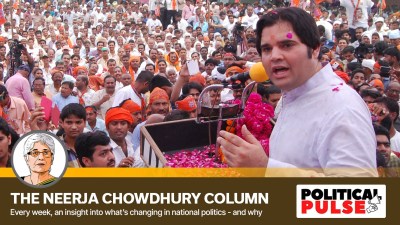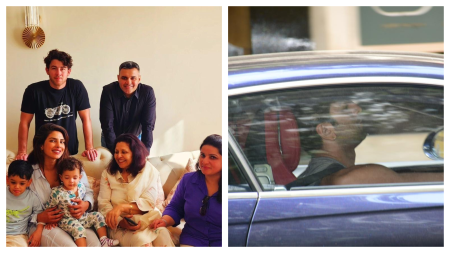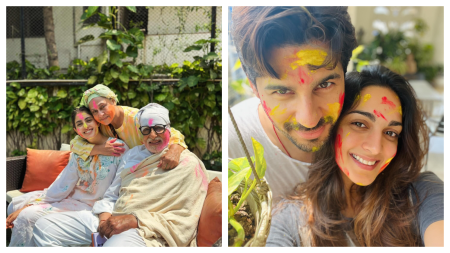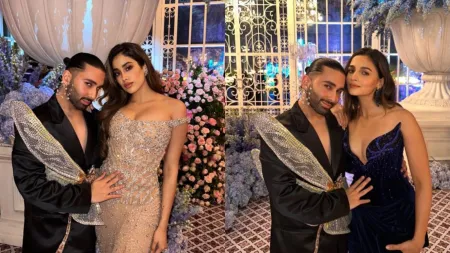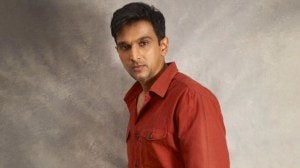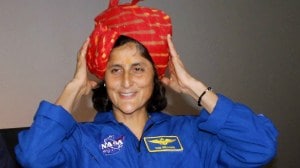- India
- International
Our movies speak of our attitude: Kumbalangi Nights director Madhu C Narayanan
Madhu C Narayanan on his debut Malayalam feature Kumbalangi Nights, mentor Aashiq Abu and the #MeToo movement.
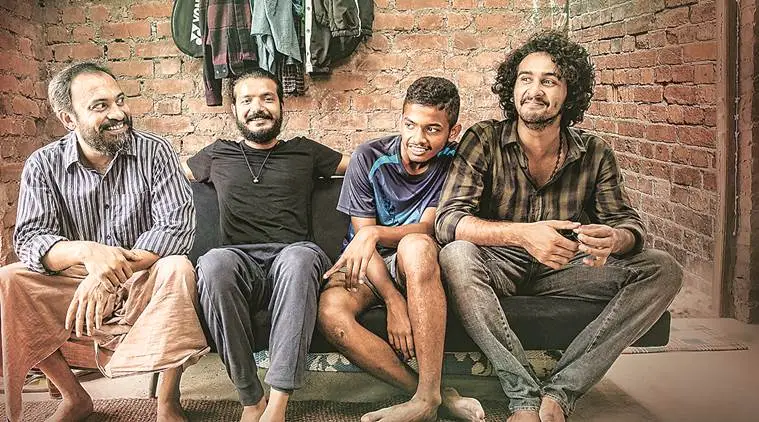 Cast of Kumbalangi Nights.
Cast of Kumbalangi Nights.
What’s in the name, Kumbalangi Nights?
Kumbalangi is the remote fishing village island near Kochi. And all major events in the film take place during the night — when the brothers meet. It is the story of four half-brothers and their dysfunctional (poor/lower middle-class) family. The setting, the story is real but the film is semi-realistic. It is commercial as it has slow-motion shots and music.
How did the story come to you?
I hail from Palakkad and have never been to Kumbalangi. Syam (Pushkaran, scenarist and producer of this film) comes from that area. He took me there. He’s been a friend since my first film (Narayanan was an AD on Daddy Cool, 2009). While working on Salt N’ Pepper (2012), he told me about the Kumbalangi script (his second solo script). I didn’t have much experience or confidence then, but we had decided that when we are ready to make a film, we will make this. There’s great attention to detail: from the bioluminescence in the backwaters to kids using Creole words like maas, freakin, scene, whose meaning might be lost in translation.
 Madhu C Narayanan helmed Kumbalangi Nights.
Madhu C Narayanan helmed Kumbalangi Nights.
Those kids, and many others, are locals of Kumbalangi. The island people have a different character and mannerisms from those of mainland Kochi. The style of fishing is also different. I stayed there for one and a half years in a waterfront house and saw the landscape, learnt their ways and dialect, grew familiar with them and got them on board. The bioluminescence is a phenomenon that the locals have witnessed. We recreated it using VFX.
The main men are established — the popular Shane Nigam as the hero, ‘romantic-hero’ star Fahadh Faasil as the toxic alpha male villain whose smile would creep you out — but you launched a new face (Anna Ben) as the heroine. Wasn’t that risky?

I wanted Shane to be the hero. I worked with Fahadh in 22 Female Kottayam (2012), in which he plays a negative role. The villain’s role needed a very good actor and he’s brilliant. He doesn’t chase stardom and puts his mind to what he can do with the character. People related to him as a representative of the average Malayali man. We men, including me, can be dominating.
I auditioned around 60-70 women. Anna was lively, I knew she could do this. For a novice, she acted better than others. Only after her selection did she tell us that her father was (noted screenwriter Benny P. Nayarambalam). We liked that.
You use comic tropes to talk about complex issues. Your craft is being branded as Aashiq Abu school of filmmaking. You have been his associate director for 10 years, how has the association been? What took you this long to make your own film?
Since childhood I wanted to be a filmmaker. I bunked classes to watch films. But it was only when I moved to Kochi more than 12 years ago that a friend introduced me to Aashiq Abu, who was working in advertising then. I told him that I have no qualifications but am interested in movie-making.
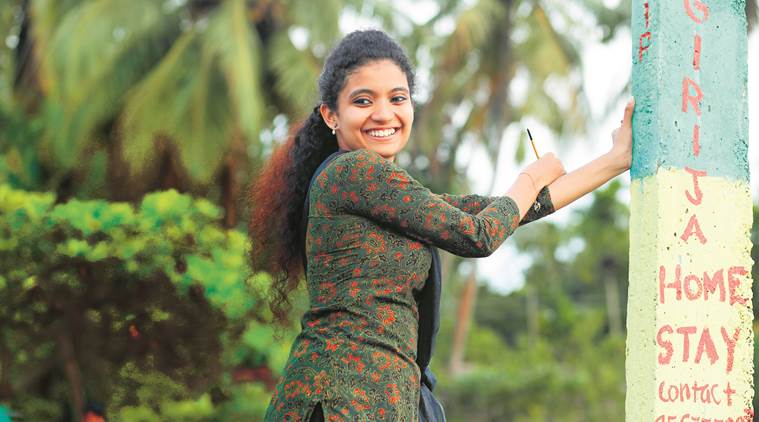 Anna Ben in Kumbalangi Nights.
Anna Ben in Kumbalangi Nights.
He took me in. What I have become now is all because of Aashiq Abu. We worked on 7-8 films together. He’s cool, calm and comfortable to work with. An Aashiq film might look easy but I realised that’s not the case. Everybody has got his own style. Similar politics might be there in the films, but every film is different. Even Aashiq’s movies are very different from each other. I learnt from him how serious one should be in cinema, how to approach a subject and develop it and be 100 per cent involved, without losing any moment.
How was the journey from script to screen?
I waited till the dates of all the people I wanted to work with came together. For more than three years, I was working on this film. I took time to complete everything. I was in no hurry, and I didn’t want to make a bad film.
You show empowered women in Babymol (Ben) and her sister. They are entrepreneurs who don’t need a man for economic reasons, and the entry of women into the unfinished house of the brothers brings life into what’s decaying. Yet, at the end, when Shammy (Faasil) locks up his wife and her sister (Ben), the brothers come to their rescue. Isn’t this anti-feminist?
No, no, it shouldn’t be seen like women are weak and can’t save themselves. The film’s not saying that. Instead, it is that, finally, one serious matter appears that brings the brothers together to work as one, functional unit. Deep down, they love and care for each other. Men and women should be together, only then ultimate power will come. Yes, in some situations, it helps because men are physically stronger.
Abu’s wife and Malayalam actor Rima Kallingal has been one of the key founding members of Women in Cinema Collective. Last year, the #MeToo movement was at its peak across sectors. Is the movement dead?
The movement is not dead. They are under one women’s collective. Anybody can join it. It’s a very good thing happening in the industry. They are trying to provide safety at workplace. I support this. I think our movies speak of our attitude. Stronger female characters can be seen in Malayalam cinema now.
Kumbalangi Nights will be screened on May 24, 11 am, at Stein Auditorium, India Habitat Centre. Online registrations on http://www.habitatfilmclub.com, passes at IHC programmes desk
Photos
Apr 25: Latest News
- 01
- 02
- 03
- 04
- 05











